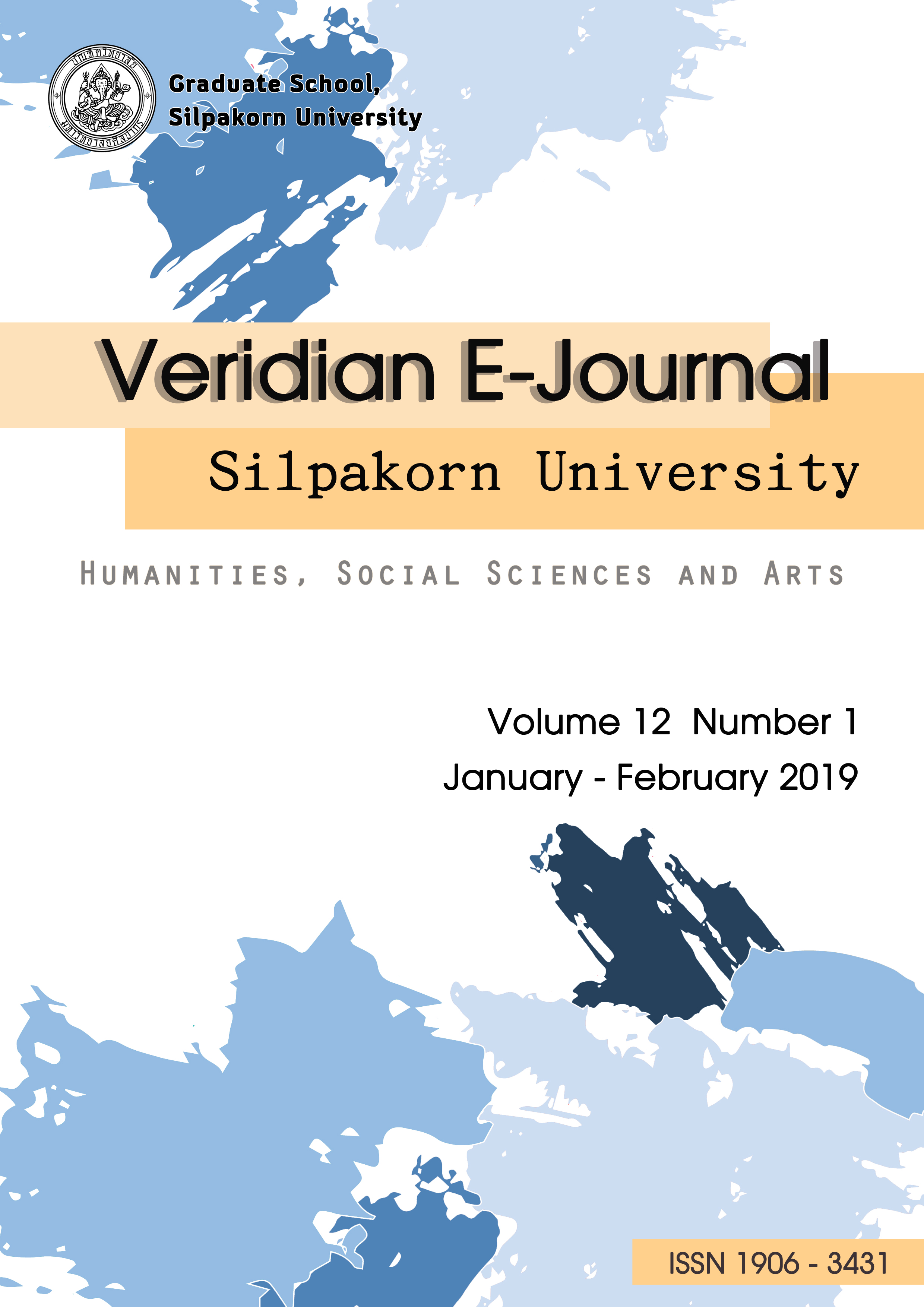ผลการใช้การจัดการเรียนรู้แบบ 4MAT เพื่อพัฒนาความสามารถทางด้านการอ่านใน วิชาภาษาไทยของนักเรียนชั้นประถมศึกษาปีที่ 6 (The Results of Using 4MAT to Develop Thai Reading Ability of Grade 6 Students)
Main Article Content
Abstract
การวิจัยครั้งนี้มีวัตถุประสงค์เพื่อศึกษาความสามารถด้านการอ่านในวิชาภาษาไทยของนักเรียนชั้นประถมศึกษาปีที่ 6 หลังจากการจัดการเรียนรู้แบบ 4MAT และความพึงพอใจของผู้เรียนที่มีต่อการจัดการเรียนรู้แบบ 4MAT ประชากรที่ใช้คือ นักเรียนชั้นประถมศึกษาปีที่ 6 จำนวน 15 คน ที่กำลังศึกษาในภาคเรียนที่ 2 ปีการศึกษา 2560 โรงเรียนบ้านแม่กอนใน อำเภอเชียงดาว จังหวัดเชียงใหม่ โดยใช้แผนการจัดการเรียนรู้แบบ 4 MAT จำนวน 8 แผน รวม 24 ชั่วโมง แบบทดสอบความสามารถด้านการอ่านใน วิชาภาษาไทย และแบบวัดความพึงพอใจต่อการจัดการเรียนรู้แบบ 4MAT วิเคราะห์ข้อมูลโดยการหาคะแนนเฉลี่ยส่วนเบี่ยงเบนมาตรฐาน และร้อยละของพัฒนาการ
ผลการวิจัยพบว่า นักเรียนที่ได้รับการจัดการเรียนรู้แบบ 4MAT มีคะแนนความสามารถด้านการอ่าน หลังเรียนสูงกว่าก่อนเรียน โดยมีค่าเฉลี่ยของคะแนนที่เพิ่มขึ้นเท่ากับ 7.73 คะแนน คิดเป็นร้อยละของพัฒนาการเท่ากับ 40.41 และ 2) นักเรียนมีความพึงพอใจหลังการจัดการเรียนรู้แบบ 4MAT โดยภาพรวมอยู่ในระดับมาก
The two objectives of this research were to study Thai reading ability of the student after using the lesson plans and to study the student’s satisfaction after using the plans. The population was grade 6 students in the 2nd semester of 2018 academic year, Ban Maekornnai School, Chiang Dao District, Chiang Mai Province. The research tools were 8 lesson plans using 4MAT totally held in 24 hours, a Thai reading ability test and a satisfaction questionnaire. Statistics employed in analysis the data included means, standard divisions, and growth percentage.
The research findings were 1) the students reading ability after using the plan were higher than before with the average of 7.73 point or 40.41 percent higher, and 2) the students’ satisfaction scored at a high level in all aspects.
Article Details
References
2)Intasingh, S. (2016). “Alternative Education: Differentiated Curriculum and Instruction”. Veridian E-Journal, Silpakorn University, Thai Version, Humanities, Social Sciences and Arts Issue, 9(1), 1188 -1106.
3)Irfan O. M., Almufadi, F. A., and Brisha, A. M. (2015). Effect of using 4MAT method on academic achievement and attitudes toward engineering economy for undergraduate students. International Journal of Vocational and Technical Education, 8(1), 1-11.
4)Leekitchwatana, P. (2015). Research Method in Education. (10 ed.). Bangkok : MEAN service supply
5)McCarthy, Bernice. (1990). 4 MAT in Action II. Barrington U.S.A. Excel Inc.,
6)Ministry of Education. (2008). The Basic Education Core Curriculum B.E. 2551 (A.D. 2008). Bangkok : Printing Agricultural Cooperative Federation of Thailand.
7)Wongsuban, N. (2010). A comparison of MATHAYOMSUKSA two student learning achievement in KHLONG SI – SUPHAB Poem by using 4MAT learning cycle strategy and the conventional method. Thesis in Master of Education, Graduate school, Silpakorn University.

